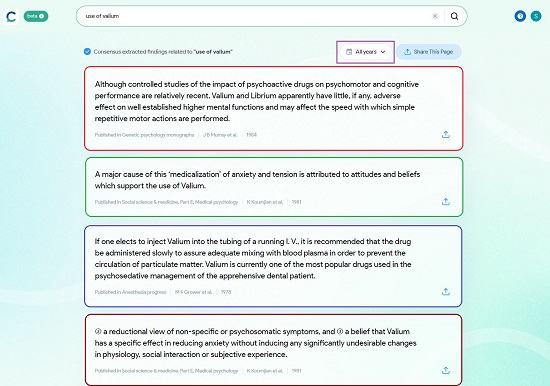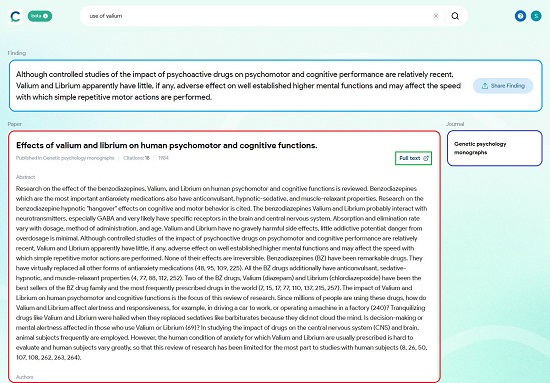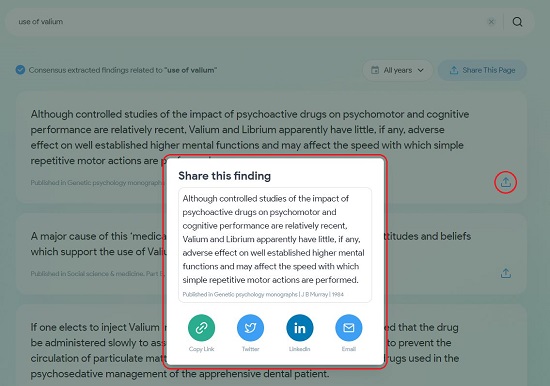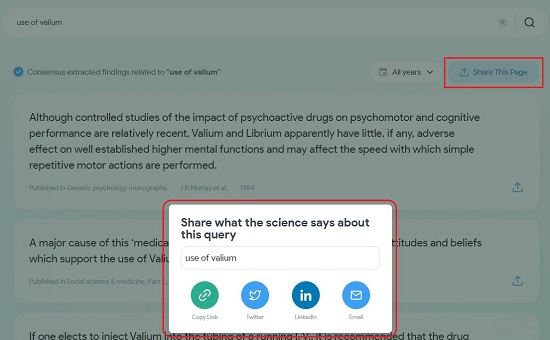Consensus is a free Search Engine that finds the answers to your questions in scientific papers. It has access to more than 200 million scholarly documents from some of the most authentic journals and researchers ranging from economic policy to vaccines, to astronomy, to global warming, and delivers the answers to you. You can become an expert in the specific area in a very short time.
One may very well ask what is the need for Consensus when we already have extremely powerful search engines like Google, Yahoo etc. Well, the answer is very simple but may come as a surprise to you. Much of the scientific information in the Google search results can be highly biased. Moreover, the top results are often paid advertisements, SEO tactics or worse, absolute misinformation. Numerous popular science articles often twist the findings of research papers to fit their narrative. Also, looking of relevant and authentic research papers is simply not possible in each case as many papers are paywalled and are not accessible without any active subscription.
Consensus is a saving grace and a great search tool in such challenging times. It is advertisement free and uses AI to extract and accumulate findings from its database of millions of scientific papers gathered from peer-reviewed and evidence-based sources.
How it Works:
1. Navigate to Consensus using the link that we have provided at the end of this article and sign up using your Google or Facebook account.
2. Type your search string carefully and tap Enter.

3. In a couple of seconds, the search results will be presented in the form of tiles. Each tile represents a finding extracted by the Consensus AI from an authentic research paper or journal. The name of the Journal, year of Publication etc is clearly shown at the bottom of the tile.

4. Unlike Google, Consensus clearly reminds you that a result appearing at the top may not necessarily mean that it is true or the most relevant. It encourages you to dig deeper into the paper as interesting research is truly complicated.
5. Click on any tile to open the findings and you will be able to read the Abstract with a clear mention of the name of the Journal, Authors etc. Click on ‘Full Text’ to actually navigate to the website where the article has been published.

6. In case you want to limit your search based on certain years, you can use the drop down at the top of the page.
7. You can click on the share icon at the right side of any tile to share it on Twitter and LinkedIn. Alternatively, you can also copy its link or send it across as an email to anyone you wish.

8. If you wish to share the entire search page containing the results, you can click on the ‘Share This Page’ button at the top right of the page.

9. Click on the question mark icon at the top of the page to learn more about how Consensus works and how to effectively use it.
Caution
Consensus is still in the Beta phase, and one should exercise a bit of caution in using it for research as Science is highly complex and requires nuanced understanding to interpret and deduce the results.
Final Words:
If you are truly irritated with the troubles of searching and identifying unbiased, evidence-based information, then Consensus is the perfect choice for you. It gets you the truth about what a particular research actually says, where it is from and whether is has been peer-reviewed by experts.
Click here to navigate to Consensus.